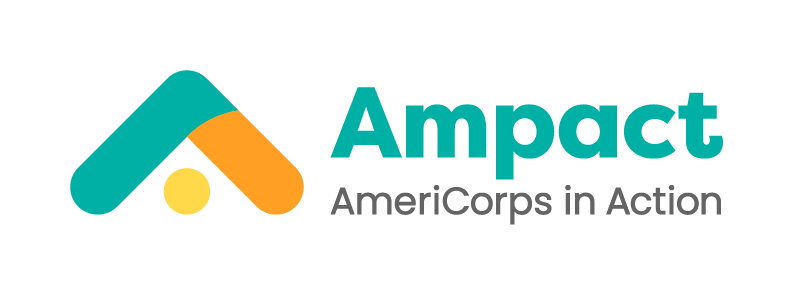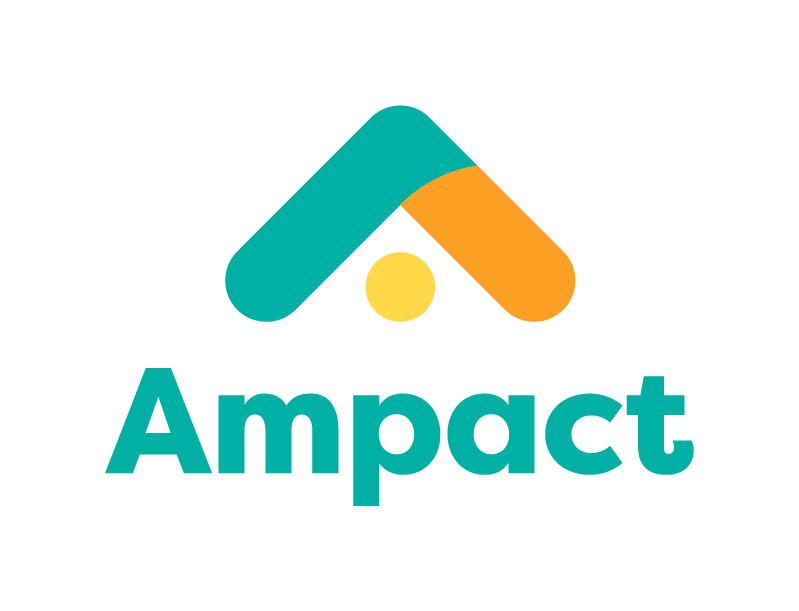Summer Impact Corps Provides New Opportunities to Enrich Student Learning
In 2023, we completed our first ever term of Summer Impact Corps! AmeriCorps members signed up to serve Minnesota communities in a variety of positions across the state. This year, the program is looking for another 400 people to join and make an impact.
One of the opportunities Summer Impact Corps members have is to serve as Youth Learning and Enrichment Fellows, who support summer programs for elementary and middle school students. Last year, these fellows explored nature, raised monarch butterflies, designed neighborhood art stations, and more! At Spark-Y Youth Action Labs, Isabelle and Walter coordinated STEM-related activities for middle school students in Minneapolis.
Isabelle
A youth program focused on STEM learning was the perfect fit for Isabelle’s SIC experience. Not only is she currently pursuing an engineering degree, but she grew up as one of the oldest of 19 grandchildren: so both science and working with children come naturally to her. Minneapolis-based nonprofit Spark-Y was looking for members to help them develop a new curriculum of STEM activities and Isabelle jumped at the chance. Summer Impact Corps was a great opportunity for her to have fun with younger students while sticking to the subjects she knows best.
Isabelle’s time as a fellow allowed her to develop her skills over a wide range of educational activities. At the beginning of the summer, she taught new STEM or sustainability lessons every day, including basic chemical reactions and water filtration. One of the largest of these lessons was a three-day urban farming camp that Isabelle helped design and lead!
Walter
Like Isabelle, Walter is also working toward an engineering degree. As a kid, he was active in community education classes and wants students in Minneapolis today to have the same great experiences he had access to. His central project as a fellow was leading students in creating aquaponic farm models.
Aquaponics is a system that uses aquatic animals and water-grown plants to produce food with minimal waste. Walter based his model on raising fish alongside a few crops that can grow in water instead of soil. Together the animals and plants form a beneficial cycle: the fish waste fertilizes the plants, while the plants’ roots filter the water and keep the tank clean for the fish.
Walter used a 3D printer to print kits that his students then used to design their own aquaponic farm models. Together as a class, they also built a real aquaponic system in a 30-gallon tank – real fish and all – to keep at Spark-Y.
Having never worked with a 3D printer before, Walter learned as he went, developing new skills which may help him back in college. Because each kit took 16 hours to print, he would leave for the day while it was printing, come back in the morning, and check to see how well the kit printed. While the project was a big success in the end, sometimes the technology went awry. He returned one morning and checked the kit only to find a mangled pile of plastic. A problem solver at heart, Walter taught himself how to fix the printer’s nozzle and got the kits back on track.
Stronger together
Later in the summer, Isabelle joined Walter on the aquaponics project, and together they streamlined the process even further.
“About halfway through I thought, ‘Hey, I’m here sometimes when Walter isn’t, and I’ve been interested in 3D printing for a while. I’m just going to poke my head in and see what happens,” says Isabelle.
“Things really picked up the pace when Isabelle started helping,” adds Walter. “She organized this wonderful schedule. Eventually we started taking different pieces out of the kit. We figured out if we printed ten of one piece at a time, it would take eight hours, and we could go piece by piece.”
The final product
When the project came to a close, the students used the farm models to grow microgreens. As part of Isabelle’s curriculum, she led the students in designing a business that could sell their crop. To put their work to the test, they attended a farmers' market and handed the greens out as free samples. In the end their efforts earned the students a 15-hour urban farming and sustainability certificate!
On top of creating memories with their students, Isabelle and Walter took away some new lessons themselves. Neither having any experience with 3D printing or aquaponics, they both appreciated the chance for hands-on, self-directed learning. They also discovered new ways they can continue making an impact after service.
“I learned that you can take a lot of ownership if you're willing to,” says Isabelle. “There were a lot of projects where I just decided to be more active in than was necessarily expected. You can have a lot of control about your life and the direction of the organization if you’re willing to speak out about it.”
“I learned that there are things out there that sound terrifying, and you have no idea how to do them, but you can set your mind to it, ask for help, and eventually you can figure stuff out and get things done,” adds Walter.
We had a great first term of Summer Impact Corps with over 400 members like Isabelle and Walter serving communities across Minnesota. Are you interested in joining? Visit Ampact.us/summer to learn more about opportunities near you. Apply by May 8, 2024, for the chance to start this year’s term in June.






